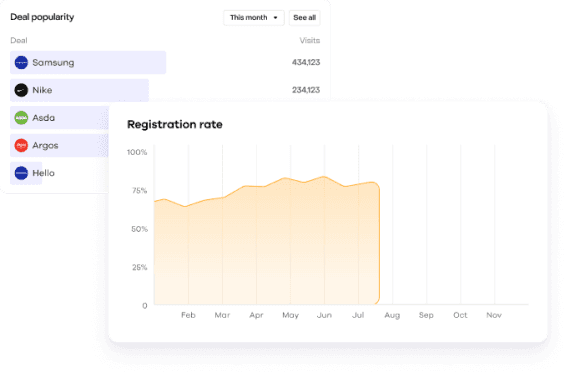
Things have changed around here
We've rebranded from Collective Benefits to Onsi. This content is from before our rebrand so you may see mention of our old name.
The hospitality staffing crisis rages on. As it does, we’re hearing reports of certain restaurants and hotels offering huge salary packages and signing on bonuses to try and attract workers. Putting eye-watering sums of money on the table isn’t within every employer’s reach, though. Luckily, there are other steps you can take when it comes to attracting and retaining talent. As we’re about to explain here, one of them is quite simple. All it really involves is asking your workers: how valued do you feel?
Many are saying hospitality staff bid a final farewell to their usual unsociable hours and gruelling shifts after experiencing another way of life in the pandemic. And, even though higher salaries are being offered, they’re not all flocking back. So if more money’s not doing the trick – could it be that the answer lies in taking a more holistic approach to re-envisioning the hospitality workscape?
We think, yes. Here’s why those five little words could have a big impact when it comes to keeping hold of top hospitality staff.
There’s a disconnect between what managers think, and what the truth is
According to research from McKinsey, the most common reason for quitting a job is staff not feeling valued by the organisation they work for (54% of responses).
The same survey finds a disconnect between what managers think the main drivers of staff turnover are – they reckon it’s compensation, work–life balance, and poor health – and what their staff are actually saying.
Employees can end up feeling undervalued (or not valued at all) for lots of reasons. They might have been passed-by for a promotion, generally feel under-thanked, or be stuck with a bad manager.
A rigorous study – “probably the best available scientific evidence on the topic at the moment” – helps us understand the significance of these possible reasons in more detail. The study was carried out across 669,000 people, so it’s definitely got legs.
One of its insights is that:
“The actual salary (intended as monetary compensation) has only a small-to-moderate effect on the decision to leave. Actually, rewards beyond pay matter more, especially benefits, training courses, and career growth opportunities.”
What do we take from that?
I think two messages: feeling valued impacts retention and, despite what we may think, financial compensation is nowhere near the most significant factor when it comes to achieving this.
There’s a link between feeling valued and emotional attachment
Theories of human psychology can help us understand why we’re seeing this data. And, in turn, why retention programmes that ignore the human need to feel valued don’t work.
Social Exchange Theory says humans generally carry out a sort of reciprocal dancing act when it comes to the way they are treated, and the way they treat others. We repay kindness with kindness, bullying with bullying, and indifference with indifference.
This applies equally to how we feel about the organisation where we work.
People who feel valued because their wellbeing at work is treated seriously are more likely to reciprocate that with an emotional attachment to their organisation.
And so, in turn, are more likely to stick around.
Workplace physical and mental wellbeing matters more than anything else
Research by the CIPD shows that “workplace physical and mental well-being matters more than anything else when it comes to key outcomes, such as job satisfaction and day-to-day enthusiasm for the job.”
Add to that the fact that studies show links between feeling valued and better physical and mental health and, well… bingo.
The good news is that improving the physical and mental health of employees is achievable for all – no matter what sector you’re in, or the job roles it entails.
The CIPD report sums up:
“This finding is encouraging, as improving line management relationships and a more supportive work environment is much less likely to be limited by the nature of the job. And it is something that applies across all skill levels, as in some areas we find middle managers reporting worse outcomes than either more senior managers or manual workers.”
What next?
Asking people if they feel valued rarely features as a dashboard indicator for senior management, but there are good reasons why that should change.
The best available evidence implies not just that it’s a strong predictor of an outcome that’s already taken seriously – worker retention - but that it’s also a factor that can be positively influenced by practical interventions that we know how to deliver.
There’s bang for your buck.
Want to find out more about worker retention in the gig economy? We’ve got just the webinar for you – check it out here.




